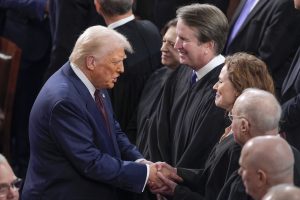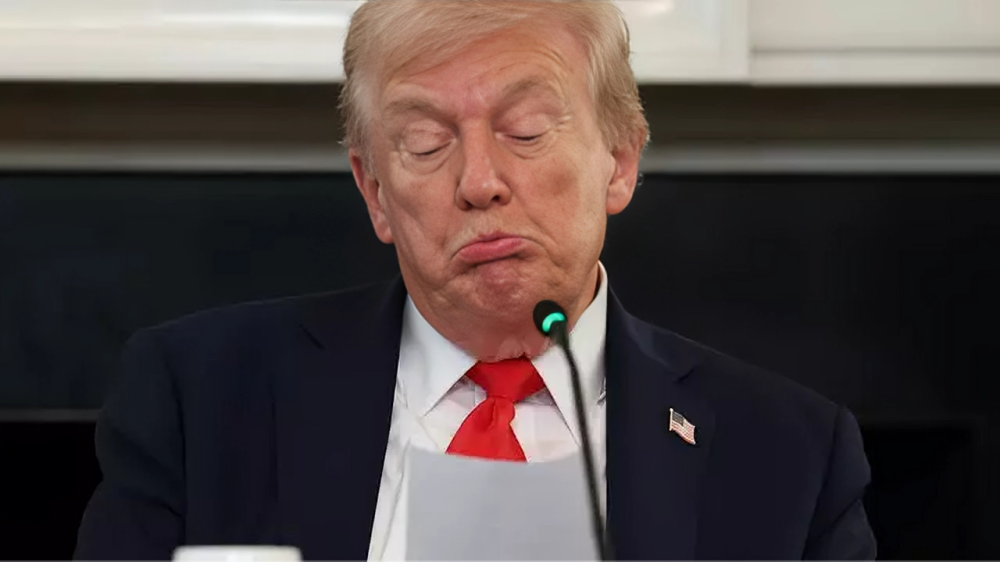President Donald Trump is once again hinting at invoking the rarely used Insurrection Act of 1807 as part of his broader campaign to deploy federal troops to cities governed by Democrats. The move comes amid mounting legal resistance, court rulings blocking deployments, and fierce pushback from state and local officials who argue such actions violate constitutional limits.
At the core of Trump’s strategy is a stark message: if courts, governors, or mayors obstruct federal enforcement or block troop deployments, he believes he has the authority to override them.
“We have an Insurrection Act for a reason,” Trump said. “If I had to enact it, I’d do that — if people were being killed and courts were holding us up, or governors or mayors were holding us up.”
What the Insurrection Act Allows — and What It Doesn’t
The Insurrection Act, dating back to 1807, grants the president the authority to deploy military forces on U.S. soil to suppress insurrections, rebellions, or domestic violence when state authorities are unwilling or unable to enforce the law.
Under typical circumstances, federal law forbids the use of military forces in domestic law enforcement, thanks to the Posse Comitatus Act of 1878. The Insurrection Act is a statutory exception to that principle, originally designed for rare emergencies when civil unrest or rebellion threatens the government’s functioning.
However, legal scholars warn that invoking it is a dramatic and contentious step. Courts have historically been reluctant to second-guess presidential judgments about when domestic unrest rises to a level justifying military deployment. Even so, critics say Trump’s threats stretch far beyond what the law was meant to allow.
Recent Deployments and Legal Pushback
While the Insurrection Act has not formally been invoked nationwide, the Trump administration has pushed forward with aggressive deployment plans for National Guard units and federal forces in several cities — and faced significant legal setbacks.
In Portland, Oregon, a federal judge blocked the administration from deploying federalized National Guard troops, rejecting arguments that small protests constituted conditions warranting federal intervention.
In Illinois, a federal judge also blocked forces from entering Chicago, though appeals and further legal action remain ongoing. The courts have signaled that the presence of localized protests or increased crime does not amount to an “insurrection” under constitutional definitions.
Still, the White House remains undeterred. Vice President JD Vance confirmed that Trump is “looking at all options,” including the Insurrection Act, while defending the administration’s justification based on rising crime rates and what it describes as “a total breakdown in law and order” in some Democratic-run cities.
The administration argues that constitutional and statutory powers permit such actions when local authority is obstructive or insufficient, especially around immigration enforcement and the protection of federal facilities.
Political Stakes and Constitutional Battles
Trump’s decision to revive interest in a 19th-century statute underscores a deeper political struggle between federal authority and state sovereignty — particularly in cities led by opposition party governors. Critics warn that invoking the Insurrection Act could set a dangerous precedent, centralizing law enforcement power in the executive branch and blurring the boundary between military and civilian authority.
Illinois Governor JB Pritzker has been among the most vocal critics, calling the potential move a “Trump invasion” and arguing that “there is no insurrection here.” He said federal deployments made without coordination with state officials amounted to “a violation of states’ rights.”
“Donald Trump is using our service members as political props and pawns in his illegal attempt to militarize our nation’s cities,” Pritzker said.
Meanwhile, Trump’s allies frame his plans as a necessary law-and-order measure to combat crime and restore public safety in urban areas. Press Secretary Karoline Leavitt defended the President’s posture, saying, “It’s a shame that in some cities, mayors are simply refusing to cooperate because they don’t like Donald Trump. That’s what this boils down to.”
This political divide has turned the Insurrection Act — a little-known law from the early 1800s — into a modern political weapon, symbolizing Trump’s belief that federal authority should override what he sees as Democratic obstruction.
Where History and Law Might Intervene
The Insurrection Act has been used sparingly throughout American history, most notably during the Civil Rights era and the 1992 Los Angeles riots. In those instances, state and local officials requested federal assistance — a major difference from the current controversy, where governors are explicitly rejecting it.
Legal experts cite Martin v. Mott (1827), a Supreme Court case affirming that the president holds broad discretion to determine when to call up the military in emergencies. However, they also note that context matters: courts can still step in to prevent “abuse of discretion” if deployment appears politically motivated rather than necessary for public safety.
Modern courts would likely face an intense constitutional balancing act if Trump were to formally invoke the Act — weighing executive power against the rights of states and individuals.
What Happens If the Act Is Invoked
If Trump proceeds with invoking the Insurrection Act, the consequences could ripple across every branch of government and deepen America’s political divide.
-
Federal-State Conflict: Governors and mayors could directly defy federal orders, triggering unprecedented standoffs between state and federal law enforcement.
-
Judicial Intervention: Federal courts could issue injunctions or temporary restraining orders, forcing the Supreme Court to weigh in.
-
Public Unrest: Civil liberties groups are likely to organize mass protests, arguing that Trump’s move constitutes an authoritarian power grab.
-
Military Tensions: The Pentagon could face questions about whether troops are legally obligated to follow orders that might violate constitutional norms.
In short, what begins as a legal maneuver could escalate into a full-scale national crisis.
A Warning Echoing Through Time
Trump’s rhetoric has alarmed historians and former officials who recall past misuses of military power. Many note that while the Insurrection Act grants broad authority, it was never meant to be used as a political bludgeon.
Even some conservative legal scholars have warned that deploying troops to confront protests or enforce immigration raids could destabilize civil-military relations and embolden future presidents to use soldiers as domestic police.
But Trump’s supporters argue the opposite — that he is acting decisively where others have failed. They point to rising crime rates and illegal immigration as proof that Washington’s traditional tools are no longer sufficient.
“People are dying in the streets,” one Trump ally said on social media. “If the president has to act, he must act. That’s what leadership is.”
Conclusion
Trump’s threats to revive the 218-year-old Insurrection Act mark another flashpoint in the nation’s ongoing struggle over power, law, and order. Whether it becomes a defining test of executive authority or another political flash in the pan depends on the courts — and on whether Trump truly follows through.
For now, his message is unmistakable: if local and state officials won’t cooperate, Washington will take matters into its own hands.
Whether America’s institutions are ready for that challenge remains to be seen.

James Jenkins is a celebrated Pulitzer Prize-winning author whose work has reshaped the way readers think about social justice and human rights in America. Raised in Atlanta, Georgia, James grew up in a community that instilled in him both resilience and a strong sense of responsibility toward others. After studying political science and creative writing at Howard University, he worked as a journalist covering civil rights issues before dedicating himself fully to fiction. His novels are known for their sharp, empathetic portraits of marginalized communities and for weaving personal stories with broader political realities. Jenkins’s breakout novel, Shadows of Freedom, won national acclaim for its unflinching look at systemic inequality, while his more recent works explore themes of identity, resilience, and the fight for dignity in the face of oppression. Beyond his novels, James is an active public speaker, lecturing at universities and participating in nonprofit initiatives that support literacy and community empowerment. He believes that storytelling is a way to preserve history and inspire change. When not writing, James enjoys jazz music, mentoring young writers, and traveling with his family to explore cultures and stories around the world.









